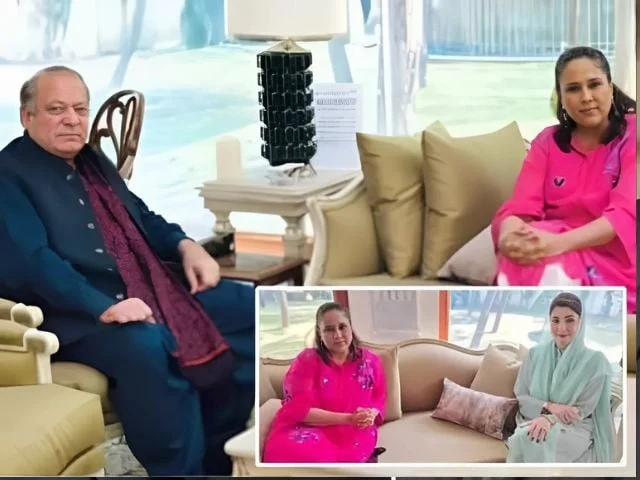Indian journalist Barkha Dutt met with former Prime Minister Nawaz Sharif and Punjab Chief Minister Maryam Nawaz in Lahore.
According to Express News, Barkha Dutt’s visit aligns with Pakistan’s preparations. The visit is for the upcoming Shanghai Cooperation Organization (SCO) summit.
Her meeting with the Pakistan Muslim League (N) leadership occurred as international media representatives began arriving in Pakistan. They are arriving to cover the high-profile event.
Also See: Pakistan & the SCO Summit: Catalyst for Multipolarity
Pakistan will host the 23rd Council of Heads of Government meeting of the SCO summit in Islamabad on Tuesday and Wednesday.
Prime ministers and senior officials from SCO member countries will attend the meeting, including Russia, Belarus, Kazakhstan, Kyrgyzstan, Tajikistan, Uzbekistan, and Iran’s First Vice President. India’s External Affairs Minister and China’s Premier Li Qiang will also participate.
According to media reports, delegations from various countries have already arrived in Islamabad, including a four-member team from India, 76 representatives from Russia, 15 officials from China, a two-member Iranian delegation, and four officials from Kyrgyzstan.
Previously Indian Foreign Minister S. Jaishankar ruled out the possibility of bilateral talks during the SCO summit.
In response to a question at an event, he stated that the nature of relations will attract media attention, but the summit will be a multilateral event.
This news is sourced from The Express Tribune and is intended for informational purposes only.


![Ukrainian and Russian flags with soldier silhouettes representing ongoing conflict. [Image via Atlantic Council].](https://southasiatimes.org/wp-content/uploads/2026/02/2022-02-09T000000Z_1319661209_MT1NURPHO000HXCNME_RTRMADP_3_UKRAINE-CONFLICT-STOCK-PICTURES-scaled-e1661353077377.jpg)



![Truck traveling along the Makran Coastal Highway in Balochistan, with rugged cliffs and the Arabian Sea coastline in the background [Image via Getty Images].](https://southasiatimes.org/wp-content/uploads/2026/02/Balochistan-2.webp)